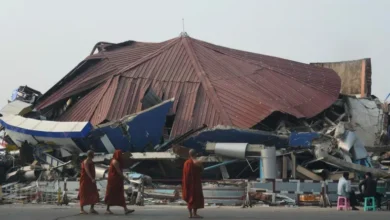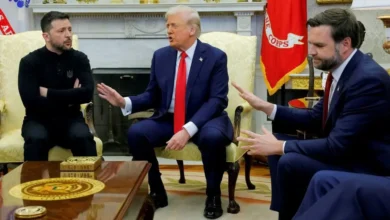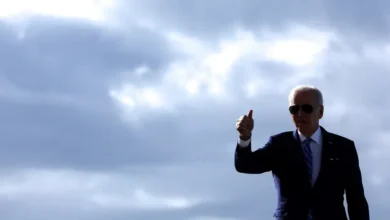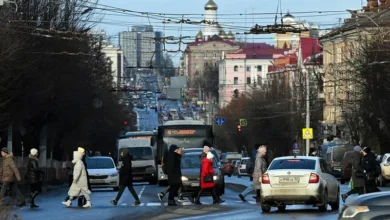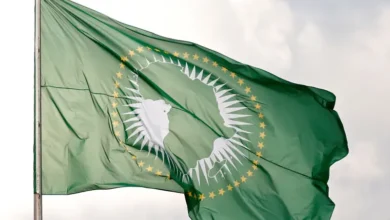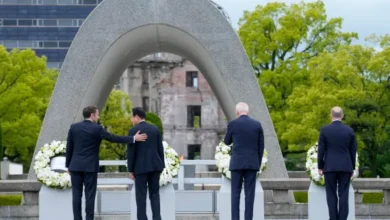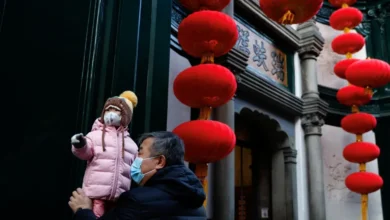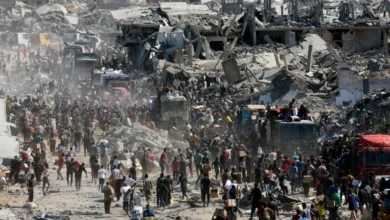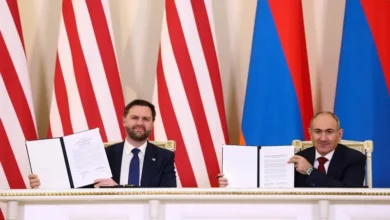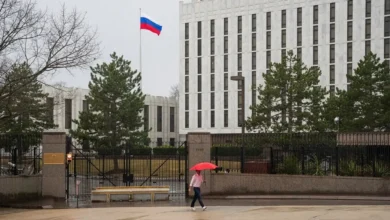West Africa’s ‘coup belt’: Did Mali’s 2020 army takeover change the region?
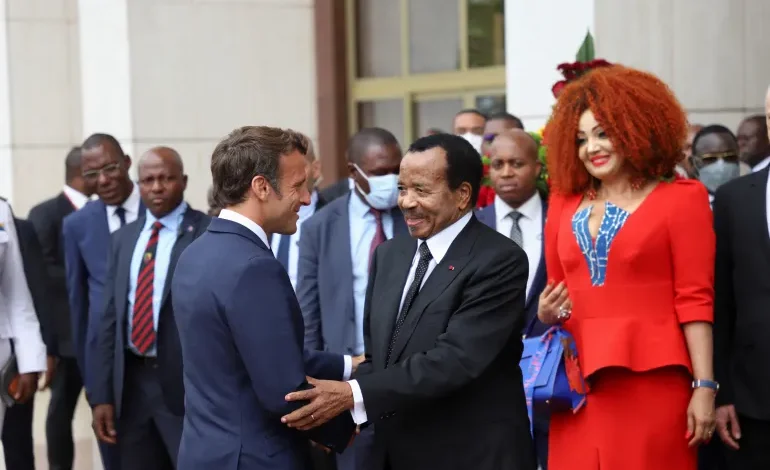
Four years ago this month, a group of Malian soldiers descended on a military base in Kati, close to the capital Bamako, arrested their most senior leaders, and seized weapons from the armoury.
Shortly after, they stormed Bamako in trucks, where they detained then-President Aboubakar Keita, as Malians jubilated in the streets. The August 18, 2020, coup d’etat came after weeks of protests against Keita who faced calls to resign, amid accusations that his government was corrupt and failed to clamp down on an armed rebellion in the country’s north waged by groups linked to al-Qaeda and ISIL (ISIS). The new military government promised to tackle the fighters swiftly.
That August marked an end to eight years of political stability in Mali, where between 2012 and 2020 there were no military takeovers in an area that was coup-prone. The takeover also stamped the start of a political ripple in the wider West Africa region that has since seen other civilian governments fall.
“We largely saw civilian rule strengthening in Africa up until that moment, and I think that the Mali coup was a critical juncture in the weakening of that norm,” said Dan Eizenga of the United States-based Africa Center for Strategic Studies (ACSS). The slew of coups is reminiscent of the 1980s-1990s when African countries newly liberated from colonial rule faced a barrage of rebellions.
“I don’t think you’ll find another four years that has seen so many coups and counter-coups since [that time],” Eizenga told Al Jazeera.
Here’s how the Malian coup unfolded, and a timeline of the military takeovers that have since followed:
Coup within a coup
After successfully dethroning Keita, Colonel Assimi Goita, the now 41-year-old special forces soldier who led the coup, was installed as vice president of a transition government, and civilian Bah Ndaw as president. The joint council promised to hold elections in 18 months. However, a power struggle soon erupted between the two sides, as each attempted to wield more influence.
On May 24, 2021, Ndaw reshuffled the cabinet, removing military leaders who had been key to the August coup. Later that day, the military arrested and sent Ndaw to the military base in Kati. Hours later, Goita announced on public television that Ndaw had tried to “sabotage” the transitional government and was thus removed. He declared himself president and extended military rule to June 2022.
Goita has continued to extend the transition. This May he pushed elections to 2027, after holding a “national dialogue” – a referendum boycotted by most political parties.
Guinea
First was Guinea. On September 24, 2021, octogenarian President Alpha Conde was booted out of government by Captain Mamady Doumbouya, the then 41-year-old head of an elite Special Forces unit created by Conde. The president had caused widespread anger after he forced a constitutional change that would allow him to seek a third term in office and then cracked down brutally on protesters who were against the move. Some Guineans swarmed into the streets in celebration as news of Conde’s fall filtered out. The military is set to hand over to a civilian government by December 2024.
Burkina Faso
In Burkina Faso insecurity spilling over from Mali, its neighbour, was intensifying after the coup. Large swaths of Burkinabe territory fell to the armed groups, putting pressure on the civilian government of Roch Marc Christian Kabore. There was growing general dissatisfaction as well with France, a former colonial power, across Francophone West Africa. Although thousands of French troops deployed in Mali and Burkina Faso, insecurity remained high.
On January 24, 2022, Kabore was deposed in a coup led by then 41-year-old Lieutenant Colonel Paul-Henro Damiba, an officer well-known for his success leading offensives on the front line. However insecurity levels worsened following the takeover, and the country lost 40 percent of its territory to the armed groups by 2023. The Burkinabe army also suffered huge defeats on the battlefront, causing anger in the military.
On September 30, 2022, Damiba’s government was overthrown by a group of soldiers led by then 34-year-old Captain Ibrahim Traore. In May 2024, Traore pushed elections
Niger
On July 26, 2023, Nigerien President Mohamed Bazoum was detained by top army officials led by the chief presidential guard, General Abdourahamane Tchiani. Niger shares borders with Mali and Burkina Faso and is also in the throes of an insecurity crisis. However, it is believed Tchiani was about to be relieved of his post, prompting the takeover.
Weeks before, on July 9, the regional Economic Community of West Africa States (ECOWAS) bloc had appointed Nigeria’s new President Bola Tinubu as chairman. In his speech, Tinubu promised to stop coups in the region – attempting to project stronger leadership as coup after coup appeared to shrink ECOWAS’s influence.
Tinubu convened an extraordinary meeting of West African leaders immediately after the Niger coup. ECOWAS suspended Niger, shut its borders, cut electricity and demanded that Bazoum be reinstated. All 15 countries except Cape Verde committed troops for a possible “military intervention”.
After the ECOWAS standby force was activated on August 10, hundreds in Nigeria took to the streets in protest, denouncing a possible war amid an economic crisis at home. Communities on the Nigeria-Niger border also called for dialogue. Meanwhile, Mali and Burkina Faso announced they would militarily defend Niger in the case of an ECOWAS invasion, and formed their own Alliance of Sahel States (AES). Tensions in the region eventually calmed after Tinubu soft-pedalled and ruled out an ECOWAS attack.
Gabon
Hours after early morning announcements that President Ali Bongo Ondimba had, again, won in the Central African country’s elections, the military stormed the national broadcaster on August 30, 2023. The coup, led by Brigadier General Brice Oligui Nguema, effectively ended the Bongo family’s 56-year rule. Nguema, who is also Bongo’s cousin, was installed as president of the transitional government on September 4, despite foreign condemnation of the coup. Elections are scheduled to be held in August 2025.
Failed attempts
There were two failed attempts to oust President Umaro Sissoco Embalo’s democratically elected government in Guinea Bissau. The first was in 2022. It is unclear who led the attack that was quelled by the military. The second, in December 2023, was allegedly instigated by Colonel Victor Tchongo who headed the National Guard.
Military reshuffles
A day after the Gabon coup in August 2023, then-90-year-old President Paul Biya of Cameroon, who has led the country since 1982, promptly reshuffled senior military officers, installing new leaders in charge of defence, air force, navy and police divisions.
Earlier, in June 2023, Rwanda’s government announced President Paul Kagame’s dismissal of two senior commanders in the military, a day after the Minister of Defence Albert Murasira and a slew of other top officials were replaced. Two days later, the Rwandan army also announced that nearly 300 soldiers were either dismissed, sacked or had their contracts revoked. Rwandan Defence and Military spokesperson, Brigadier General Ronald Rwivanga told local journalists the affected soldiers showed “gross misconduct” like drunkenness or insubordination and that there was “no fear” of a coup.
Goodbye France, hello Russia
The multiple coups came amid growing general resentment of France in Francophone countries, where many accuse Paris of neocolonial tendencies, pointing to the widespread presence of French businesses, and the continued pegging of the common CFA currency to France’s euros, for example.
Since the takeovers in Mali, Burkina Faso and Niger, the military governments have played up those populist feelings, casting Paris in a poor light, and severing ties. They have pressured foreign forces to leave, leading to the withdrawal of thousands of French and American troops that were once positioned across the region, helping to fight armed groups. The French military completely pulled out of the Sahel between 2022 and 2023. Bamako also demanded that a 15,000-man United Nations peacekeeping mission (MINUSMA) leave last December.
Meanwhile, all three have turned to Russia for strategic support.
back by five years.
